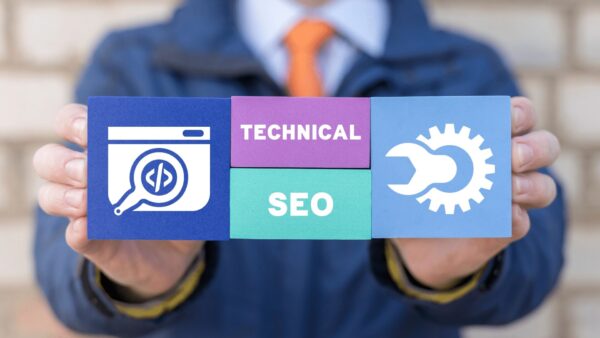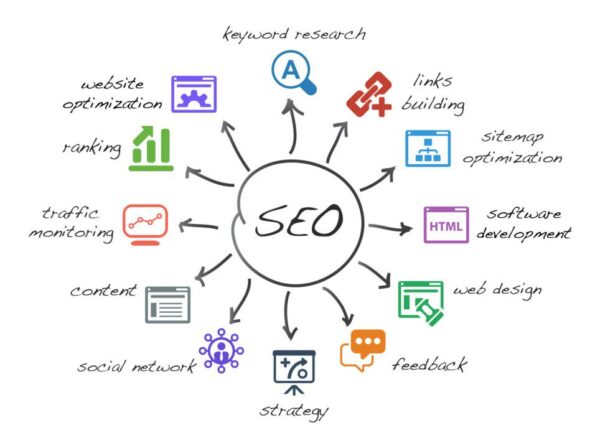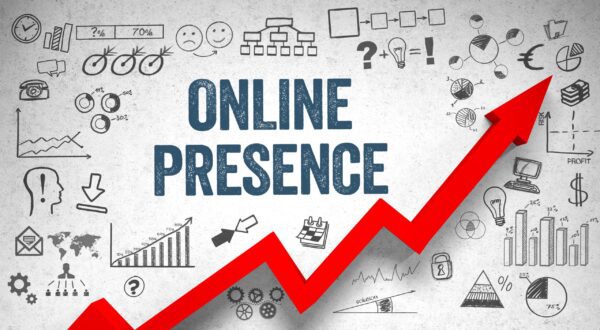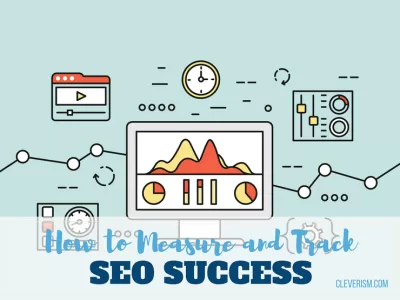SEO for edtech is critical as the adoption of technology in education is on the rise, similar to the mass transition of users to the internet when searching for services. As a result, there is wild competition and having a robust online presence is critical.
As most learning institutions are shifting online, the need for effective SEO (search engine optimization) strategies for edtech (educational technology) becomes a game-changer for companies in this potent field. SEO is optimizing your website to rank higher on search engine results pages (SERPs), which can increase traffic and leads.

In this blog post, we will offer practical tips on optimizing E-learning websites and applications for search engines. We will also explore the role of keywords, content marketing, and various SEO strategies that can significantly enhance online visibility in the highly competitive edtech market.
To understand SEO for edtech, you need first to understand the fundamentals of SEO. This includes researching and selecting relevant keywords, optimizing your website’s structure and content, and building high-quality backlinks. Once you know these basics, you can develop an edtech SEO strategy tailored to your specific needs and goals.
Technical SEO is also an essential aspect of SEO for edtech platforms. This involves optimizing your website’s technical elements like page speed, mobile-friendliness, and site architecture. In addition, enhancing your visibility through social media and PR can also help boost your SEO efforts. By measuring your SEO for edtech success, you can determine what’s working and needs improvement and adjust your strategy accordingly.

Key Takeaways
- SEO for edtech is vital for companies looking to increase their online visibility and attract more traffic and leads.
- Understanding the fundamentals of SEO, developing a tailored edtech SEO strategy, and optimizing technical elements are all important aspects of SEO for edtech platforms.
- Enhancing social media and PR visibility and measuring SEO success are key factors in improving your edtech SEO efforts.
- Understanding SEO Fundamentals
When it comes to SEO for edtech, it’s advisable to start with the basics. Understanding the fundamentals of SEO can help you improve your online presence and attract more traffic to your website. Here are some key concepts to keep in mind:
Importance of Keywords
Keywords are the foundation of SEO. They are the words and phrases that people use to search for information on the internet. By incorporating keywords into your website’s content, you can help search engines like Google understand what your site is about and rank it accordingly.
To find the right keywords for your edtech business, you can use tools like SEMrush or Ahrefs. These tools allow you to see what keywords your competitors are using and identify new ones you may not have considered. When selecting keywords, choosing ones that are relevant to your business and have a high search volume is important.

Role of Content Quality
In addition to keywords, the quality of your website’s content also plays a significant role in SEO for edtech. Search engines like Google prioritize websites that have high-quality, informative content that is relevant to the user’s search query.
To improve the quality of your content, make sure it is well-written, easy to read, and provides value to your audience. You can also use formatting such as headings, lists, and bold or italicized text to make your content more readable and engaging.
2. SEO Tools and Resources
Many tools and resources are available to help you improve your website’s SEO. In addition to keyword research tools like SEMrush and Ahrefs, you can also use tools like Google Analytics to track your website’s traffic and monitor your SEO performance.
Other resources that can be helpful include SEO blogs and forums, which can provide valuable insights and tips for improving your website’s SEO. By staying up-to-date on the latest SEO trends and best practices, you can ensure that your edtech business stays ahead of the competition.
3. Developing an Edtech SEO Strategy
To develop an effective SEO strategy for your edtech business, you need to consider various factors such as your target audience, content marketing plan, backlinks, and authority. By doing so, you can improve your ROI and increase your visibility in search engines.
Targeting the Right Audience

You need to understand your customers’ needs and preferences to target the right audience. Conduct market research and analyze your competitors to identify the keywords that your target audience is using to search for your products or services. Once you have identified these keywords, optimize your website content and metadata accordingly.
Crafting a Content Marketing Plan
Crafting a content marketing plan is essential to attract and engage your target audience. Develop high-quality, relevant, and informative content that aligns with your customers’ needs. Use a mix of different content formats, such as blog posts, videos, infographics, and case studies, to keep your audience engaged.
Leveraging Backlinks and Authority
Backlinks and authority are critical factors that influence your website’s ranking in search engines. Focus on building high-quality backlinks from authoritative websites relevant to your niche. This will help you improve your website’s authority and increase your visibility in search engines.
To summarize, developing an effective SEO strategy for your edtech business requires targeting the right audience, crafting a content marketing plan, and leveraging backlinks and authority. Doing so can improve your ROI and increase your visibility in search engines.

4. Technical SEO for Edtech Platforms
When it comes to optimizing your Edtech platform for search engines, technical SEO is an important aspect to consider. Technical SEO involves improving the technical elements of your website to make it more search-engine friendly. Here are some key areas to focus on:
Site Architecture and Navigation
A clear and organized site architecture and navigation can help search engines crawl and index your website more effectively. This means ensuring that your website has a clear hierarchy of pages, with each page being easily accessible from other pages. A good site structure can also improve the user experience, making it easier for visitors to find the information they seek.
Optimizing for Mobile and AMP
With more and more users accessing the internet on their mobile devices, it’s important to ensure that your Edtech platform is mobile-friendly. This means using responsive design to ensure that your website looks good and functions well on all screen sizes. In addition, implementing Accelerated Mobile Pages (AMP) can help improve the speed and performance of your website on mobile devices.
Improving Site Speed and Performance
Site speed is critical in user experience and search engine rankings. Slow-loading pages can lead to high bounce rates and lower rankings in search results. To improve site speed, you can optimize images, minify CSS and JavaScript files, and leverage browser caching. You can also consider using a content delivery network (CDN) to serve your website’s content from servers located closer to your users.
By focusing on these technical SEO elements, you can improve the performance and visibility of your Edtech platform in search engine results pages.
5. Enhancing Visibility Through Social Media and PR
As an Edtech company, it’s essential to establish a strong online presence to increase brand awareness and reach a wider audience. Social media and PR are powerful tools to help you achieve this goal, translating to SEO for edtech. Building an online presence and engaging with the educational community can enhance your visibility and attract more customers.
Building an Online Presence
Social media platforms like LinkedIn and Instagram are great tools for building an online presence. LinkedIn is a professional networking site that allows you to connect with other professionals in the education industry. You can use LinkedIn to share updates about your company, post job openings, and engage with your followers.
Instagram is a visual platform that allows you to showcase your products and services through images and videos. You can use Instagram to share behind-the-scenes content, highlight customer success stories, and promote your latest products.

To build an online presence, you should create a social media strategy that outlines your goals, target audience, and content plan. Your strategy should include a content calendar that outlines the types of content you will post, the frequency of posts, and the platforms you will use. By creating a consistent and engaging social media presence, you can increase your brand awareness and attract more followers.
Engaging with the Educational Community
PR is another powerful tool for enhancing your SEO for edtech, increasing online visibility, and building your brand. By engaging with the educational community, you can establish yourself as a thought leader and build credibility in your industry. You can do this by pitching stories to education publications, speaking at industry events, and participating in educational forums and groups.
You should identify key influencers and publications in your industry to engage with the educational community. You can then reach out to them with a personalized pitch that highlights your expertise and the value you can offer their audience. By building relationships with influencers and publications, you can increase your visibility and establish yourself as a trusted source of information.
In conclusion, social media and PR are potent tools that can help you enhance your visibility and attract more customers. By building an online presence and engaging with the educational community, you can establish yourself as a leader and build credibility in your industry.
6. Measuring SEO Success in Edtech
To determine the effectiveness of your SEO strategy, you need to measure its success. Here are some key performance indicators (KPIs) to track:

Key Performance Indicators (KPIs)
- Rankings: Track your website’s position in search engine results pages (SERPs) for target keywords. Higher rankings indicate better visibility and increased organic traffic.
- Organic Traffic: Monitor the number of users visiting your site from organic search. Increasing organic traffic is a sign that your SEO efforts are paying off.
- Conversions: Measure the number of visitors who take a desired action on your site, such as filling out a form or making a purchase. Tracking conversions helps you determine the ROI of your SEO efforts.
- Revenue: Track the revenue generated by your SEO efforts. This includes direct and indirect revenue, such as increased brand awareness and customer loyalty.
ROI and Conversion Tracking
To measure the ROI of your SEO efforts, you need to track conversions and revenue. Here are some tips for monitoring conversions:
- Set up conversion tracking: Use tools like Google Analytics to track conversions on your site. Set conversion goals to track specific actions, such as form submissions or product purchases.
- Track revenue: Use tools like Google Analytics or your e-commerce platform to track revenue generated by your SEO efforts.
- Analyse conversion data: Use conversion data to identify areas for improvement in your SEO strategy. For example, if you notice a high bounce rate on a particular page, you may need to improve the page’s content or user experience.
By tracking these KPIs and analyzing conversion data, you can measure the success of your SEO strategy and make data-driven decisions to improve it.
In conclusion, SEO for edtech is not different from other forms of SEO as implemented in diverse industries. Following the strategies highlighted above, ranging from understanding the basics of SEO for edtech to measuring the success of your efforts will ensure you apply the best practices and earn a good return on investment.

